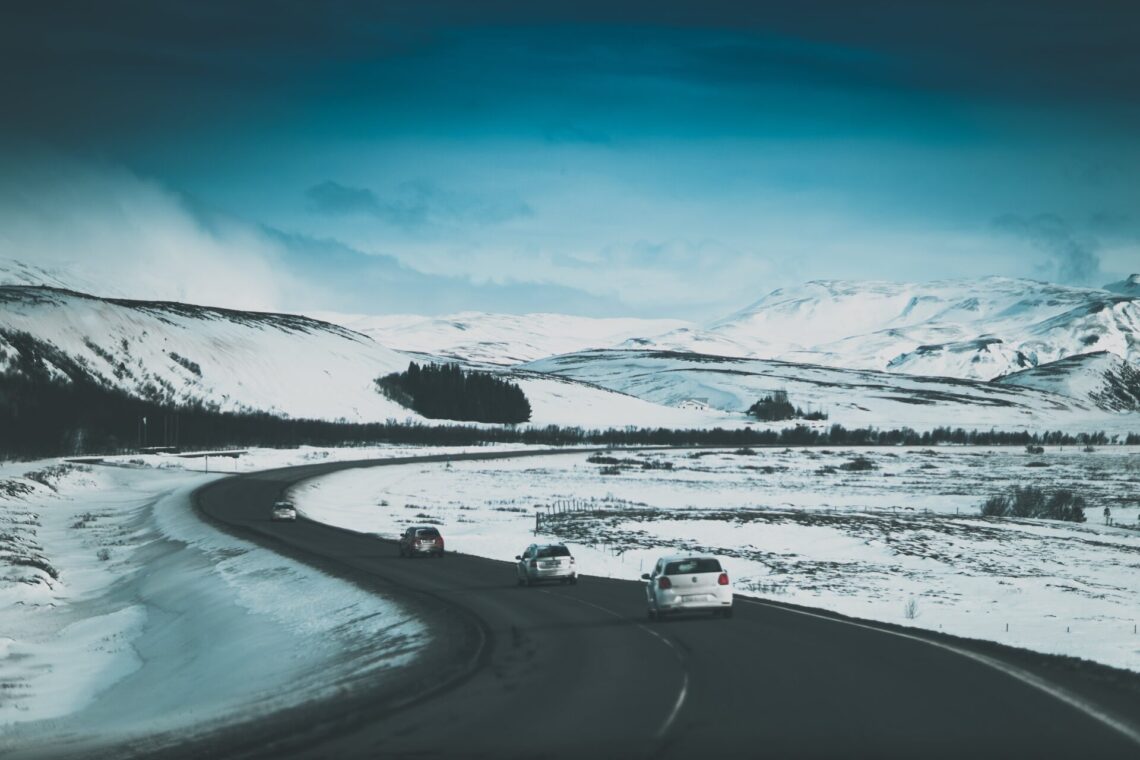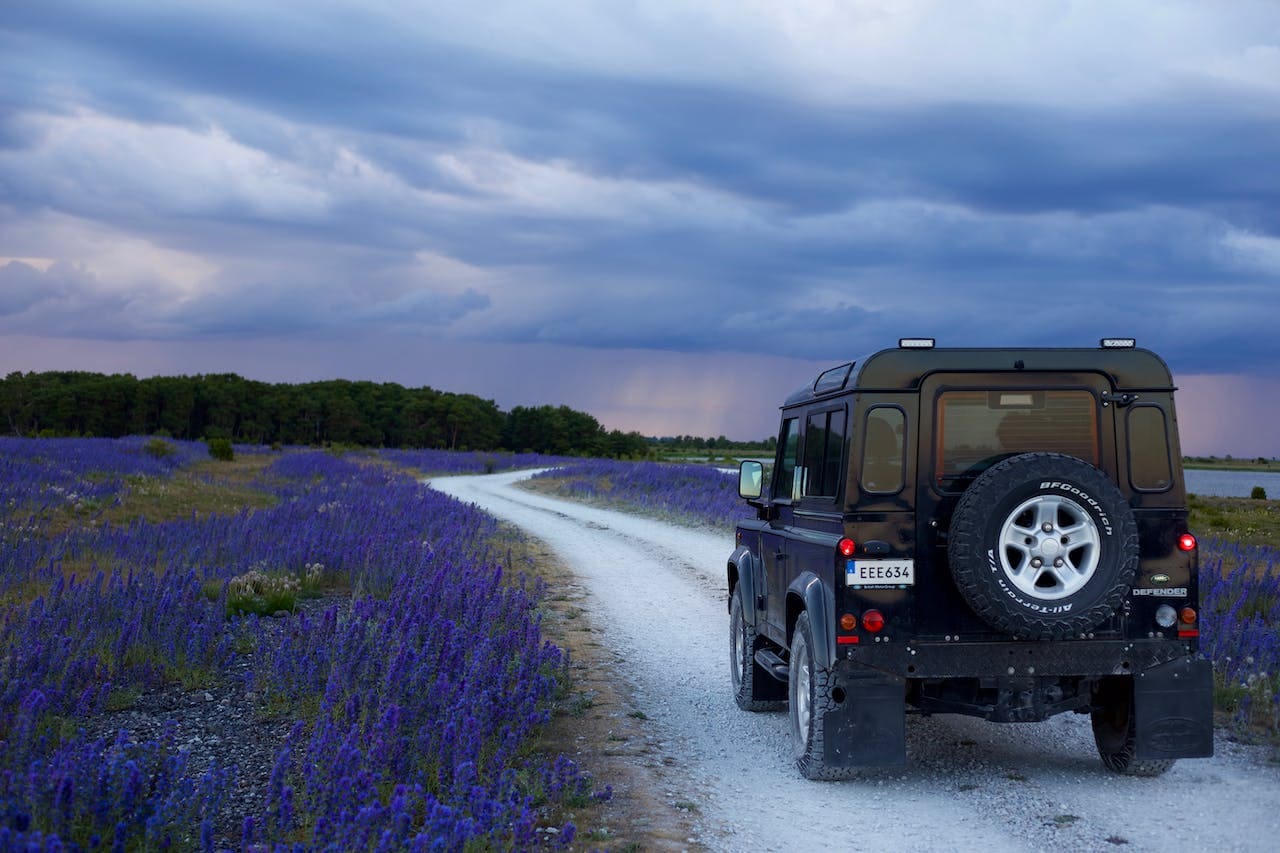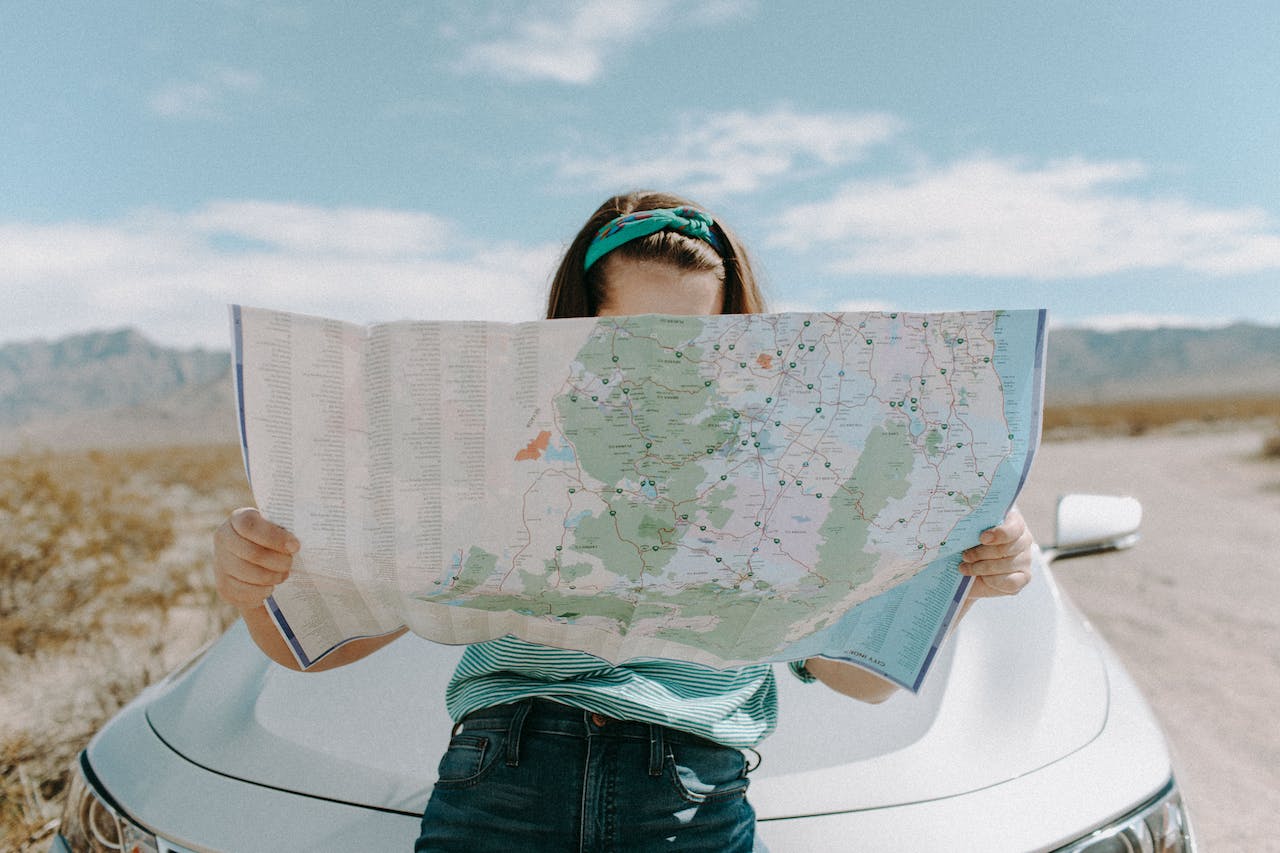
The Magic of Road Trips: Planning an Epic Journey on Four Wheels
There’s something inherently captivating about road trips, an adventure waiting to unfold with every turn of the road. The wind in your hair, the promise of the unknown around every bend, and the sense of boundless freedom—these are just a few aspects that make road trips a truly magical way to explore the world.
Unlike other forms of travel, road trips provide you with the flexibility to set your schedule, make spontaneous detours, and immerse yourself in the scenic beauty and local culture of the places you visit. Let’s delve into why road trips are an enticing choice and explore the numerous benefits they offer.
We’ll also explore the reasons why road trips are so appealing, the advantages they offer over other travel options, and how to plan the perfect road trip adventure. So, fasten your seatbelt and join us as we embark on a journey of discovery.
Why Road Trips are Special
So, why should you choose a road trip over other travel options? The answer lies in the unparalleled freedom and flexibility that road trips offer. Unlike the confines of scheduled flights or train rides, road trips let you set your own pace. You’re not beholden to schedules or limited by destinations; instead, you can go where the road takes you.
Road trips allow you to forge an intimate connection with the places you visit, immersing yourself in the local culture and landscape. The sense of freedom, independence, and the opportunity to uncover hidden gems along the way make road trips a cherished form of travel for many.
Choosing Your Route
Picking the Perfect Destination:
Selecting the right destination is crucial to a successful road trip. Whether you yearn for the tranquility of the countryside, the excitement of a bustling city, or the solitude of remote wilderness, your destination will set the tone for your entire journey. Consider your interests, time constraints, and the type of experience you desire when choosing your destination.
Scenic Routes and Hidden Gems:
A significant part of the road trip experience lies in the journey itself. Seek out scenic routes that offer breathtaking vistas and hidden gems off the beaten path. Research your route and uncover local attractions, natural wonders, and charming small towns that can transform your road trip into an unforgettable adventure.
Mapping Out Your Journey:
Once you’ve decided on a destination and outlined your route, it’s essential to map out your journey. Utilize navigation tools, GPS devices, and physical maps to plan your stops and estimate travel times. Remember that spontaneity is a core aspect of road trips, so leave room for unexpected detours and delightful discoveries along the way.
Preparing Your Vehicle
Vehicle Maintenance and Checks:
Ensuring your vehicle is road-ready is paramount for a smooth road trip experience. Before embarking on your journey, conduct a thorough maintenance check. This includes inspecting the engine, brakes, tires, and fluids. Regular maintenance can prevent breakdowns and keep you safe on the road.
Packing Essentials for the Road:
Packing efficiently is key to a comfortable and enjoyable road trip. Pack essential items like clothing, toiletries, first-aid supplies, and camping gear if needed. Tailor your packing list to your destination and activities, but remember that you’ll have limited space, so prioritize necessities.
Safety Measures and Emergency Kit:
Safety should always be a priority when embarking on a road trip. Prepare an emergency kit that includes items like a flashlight, blankets, a basic tool kit, and non-perishable food and water. Make sure your vehicle has spare tires, jacks, and jumper cables, and keep important contact information and documents readily accessible.
Budgeting and Planning
Managing costs and staying within budget during a road trip is essential to ensuring a stress-free and enjoyable journey. Here are some financial considerations and tips for a cost-effective road trip:
Establish a Realistic Budget:
Before embarking on your road trip, create a detailed budget that accounts for all potential expenses, including gas, accommodation, food, activities, and emergency funds. Consider how long your road trip will last, the number of people traveling, and the destinations you plan to visit.
Track Your Expenses:
Keep a record of all your expenses during the trip. Use a dedicated notebook, a budgeting app, or spreadsheets to track your spending in real time.
Regularly review your expenses to ensure you’re staying within your budget.
Gas and Fuel Costs:
Plan your route to optimize fuel efficiency and minimize the distance between gas stations.
Utilize apps and websites that provide real-time information on gas prices along your route so you can fill up at the most cost-effective locations.
Accommodation Options:
When it comes to accommodations for your road trip, there are various options to consider, catering to different preferences and budgets. Here are some of the most common choices:
Hotels and Motels:
Hotels range from budget to luxury, offering amenities like Wi-Fi, breakfast, and housekeeping.
Motels are often more budget-friendly and can be found along highways and in smaller towns.
Camping:
Camping can be a cost-effective and immersive option, allowing you to connect with nature.
Choose from established campgrounds with facilities or more remote, off-grid sites.
Hostels:
Hostels provide affordable shared accommodations, making them a great choice for budget-conscious travelers.
Many hostels offer private rooms in addition to dormitory-style beds.
Vacation Rentals:
Websites like Airbnb and Vrbo offer vacation rentals that vary from cozy cabins to entire houses.
Renting a vacation home can be a more private and comfortable option for groups.
Couchsurfing:
Couchsurfing is a community of travelers and hosts who offer free accommodation in their homes.
It’s a budget-friendly option that allows you to connect with locals.
RV or Camper Van:
If you have the means, consider renting an RV or camper van for a unique and mobile accommodation experience. It offers the convenience of transportation and lodging in one place.
Food and Dining Choices:
Food is a crucial part of the road trip experience. Here are some choices for food and dining on a road trip:
Pack Your Meals:
Save money by bringing non-perishable food items, snacks, and drinks for the journey.
Make sandwiches, salads, or other easy-to-prepare meals in advance.
Local Markets and Grocery Stores:
Visit local markets and grocery stores to purchase fresh produce, snacks, and other essentials.
Create a picnic or prepare meals using your camping or cooking equipment.
Food Trucks and Street Vendors:
Food trucks and street vendors often offer affordable and delicious local dishes.
It’s an excellent way to taste the regional cuisine.
Affordable Restaurants:
Look for budget-friendly restaurants that offer daily specials, early bird menus, or lunch deals.
Consider dining at casual, family-owned eateries for an authentic experience.
Fine Dining and Special Treats:
Splurge on a few special dining experiences at renowned or unique restaurants to savor local flavors.
Plan these treats as a reward for reaching specific destinations.
Cook at Campsites:
If you’re camping, take advantage of campfire cooking or portable stoves to prepare your meals.
This allows you to enjoy the great outdoors while cooking.
Dine with the locals:
Seek out recommendations from locals for hidden culinary gems, and don’t be afraid to strike up conversations with locals for suggestions.
Packing Smart
What to Pack for a Road Trip:
Efficient packing is crucial to maximizing space and comfort during your road trip. Here’s a list of essential items to consider:
Clothing: Pack versatile and weather-appropriate clothing. Layers are essential to adapting to changing conditions.
Toiletries: Bring personal hygiene items, a first-aid kit, prescription medications, and any other necessary health supplies.
Entertainment: Books, music, podcasts, and travel games can keep you entertained during long stretches on the road.
Camping Gear: If camping, bring a tent, sleeping bags, and cooking equipment.
Electronics: chargers, power banks, and a GPS device or smartphone with navigation apps are important.
Vehicle Documents: Carry your driver’s license, vehicle registration, and proof of insurance.
Travel Documents: Don’t forget passports, IDs, and any necessary travel permits or visas.
Safety Equipment: Reflective vests, warning triangles, and a fire extinguisher are important for safety.
Outdoor Gear: If you plan outdoor activities, pack appropriate gear, such as hiking boots, fishing equipment, or water sports gear.
Tips for Efficient Packaging
Make a list: Create a comprehensive packing list to stay organized and ensure you don’t forget essential items.
Pack Light: Minimize the number of clothing items you pack and choose versatile pieces that can be mixed and matched.
Use Packing Cubes: Packing cubes can help you compartmentalize your belongings and keep them organized within your luggage.
Roll or Fold: Consider rolling clothes to save space and minimize wrinkles. Fold more formal items.
Vacuum-Sealed Bags: Use vacuum-sealed bags for bulky items like sleeping bags or winter clothing to reduce their volume.
Pack Essentials in a Day Bag: Keep a small bag with essentials like travel documents, medications, and snacks easily accessible.
Check Weight Limits: Be mindful of weight limits for luggage and your vehicle’s load capacity to ensure safety.
Plan for Laundry: If your road trip is extended, plan for laundry stops or bring laundry detergent for handwashing.
Efficient budgeting and smart packing are essential aspects of road trip planning. By carefully considering costs, accommodation options, and food choices, and by packing efficiently, you can make the most of your adventure while staying within your budget and enjoying a comfortable, stress-free journey.
Navigating on the Road
GPS, Maps, and Apps:
Modern technology has made navigation on the road easier than ever. Use GPS devices, navigation apps on your smartphone (such as Google Maps, Waze, or dedicated GPS apps), and printed maps to chart your course. Ensure you have a reliable power source for your devices, such as car chargers and power banks. Having a backup paper map can be invaluable in areas with weak or no cell service.
Staying on Course:
Even with advanced technology, it’s essential to stay vigilant and follow road signs. Pay attention to traffic regulations, speed limits, and detour signs. Regularly check your route and be open to adapting it if you encounter unexpected changes or closures.
Dealing with Unexpected Detours:
Road trips are known for their spontaneity, and unexpected detours are part of the adventure. Whether it’s due to road closures, interesting diversions, or serendipitous discoveries, embrace the opportunity to explore the unknown. Stay flexible in your plans and have contingency routes in mind.
Exploring Your Stops:
Activities and Attractions:
Each stop along your road trip should be a gateway to new experiences—research and plan activities and attractions in advance to make the most of your time.
Visit national parks, museums, historical sites, and recreational areas. Take scenic hikes, go wildlife-watching, or engage in activities that highlight the unique aspects of the region.
Cultural Experiences:
Immerse yourself in the local culture of each destination. Attend festivals, visit art galleries, explore markets, and interact with locals. Learn about the history and traditions of the areas you pass through. Engaging with the culture enhances the richness of your road trip.
Local Cuisine and Dining:
Sampling local cuisine is a highlight of any road trip. Try regional dishes and specialties at local restaurants, food trucks, or markets. Don’t forget to ask locals for recommendations; they often know the best-kept culinary secrets. Exploring the local food scene is a delicious way to connect with the places you visit.
Entertainment on the Road
Road trips can be long, and keeping yourself and your fellow travelers entertained is crucial for a fun journey. Here are some entertainment ideas:
Games:
- License Plate Game: Spot and call out license plates from different states or countries.
- 20 Questions: Take turns thinking of an object, and the others ask up to 20 yes-or-no questions to guess what it is.
- Road Trip Bingo: Create bingo cards with common road trip sights (e.g., cows, a red barn, a windmill) and mark them off as you spot them.
- I Spy A classic game where one person chooses an object and says, “I spy with my little eye, something that is…” and others take turns guessing.
- Music:
- Road Trip Playlist: Curate a special road trip playlist with your favorite songs, sing-along tunes, and road trip classics to keep the mood high.
- Audiobooks: Choose audiobooks that appeal to all passengers. This is a great way to pass the time and enjoy a shared story.
- Podcasts: Find podcasts on a wide range of topics to keep everyone engaged and entertained.
Audiobooks:
Explore a wide variety of genres, from mystery and adventure to self-help and travel memoirs. Consider stories related to your route or the destinations you’ll visit.
Ideas for Unplugged Moments and Taking in the Scenery:
While it’s important to have entertainment options, don’t forget to unplug and fully enjoy the scenic beauty of your road trip.
- Pull Over for Photos: Whenever you encounter a breathtaking view or an interesting spot, don’t hesitate to pull over and capture the moment.
- Mindful Moments: Dedicate some time to simply observe and appreciate the surroundings. Engage in deep conversations or take a moment to meditate.
- Picnics and Rest Stops: Plan picnics at scenic rest stops or parks along the way. Enjoy a meal surrounded by nature.
- Hiking and Exploration: Make short stops for hikes, nature walks, or to explore local attractions.
Capturing Memories
Photography Tips:
- Photography is a fantastic way to document your road trip and create lasting memories. Consider the following tips:
- Capture the journey, not just the destination. Don’t rush to take photos only at your final stop. Some of the most memorable shots can be taken along the way.
- Experiment with different angles and perspectives to create more interesting photos.
- Take candid shots of people you meet and local experiences to add depth to your photo collection.
- Don’t forget to photograph the small details that make your journey unique, such as road signs, local flora, or unusual landmarks.
Journaling Your Journey:
- Daily Entries: Write daily journal entries to record your experiences, thoughts, and feelings. Include the date and location.
- Include Drawings: Add sketches, doodles, or illustrations to your journal for a multi-sensory experience.
- Highlight Local Culture: Describe encounters with locals, cultural experiences, and interesting conversations.
- Quotes and Mementos: Include memorable quotes, tickets, or mementos from each stop in your journal.
- Reflect and Connect: Take time to reflect on your experiences and their significance in your journey.
Creating Lasting Memories:
- Printed Photo Albums: Compile your best road trip photos into printed albums for a tangible keepsake.
- Digital Memory Books: Create digital photo books or blogs to share your journey with friends and family.
- Collect Souvenirs: Collect souvenirs unique to each location as mementos of your road trip.
- Create a Travel Map: Pin or mark the places you’ve visited on a map to visualize your journey.
- Review and Relive: Periodically revisit your journal and photos to relive the memories and share your experiences with others.
Safety and Wellness
Staying Healthy on the Road:
- Maintaining your health during a road trip is essential for an enjoyable journey. Here are some tips:
- Stay hydrated and carry a reusable water bottle.
- Pack essential medications and a basic first-aid kit.
- Prioritize healthy eating, incorporating fruits and vegetables into your meals.
- Get regular exercise, whether it’s short hikes, walks, or even yoga sessions during breaks.
Personal Safety Guidelines:
- Personal safety is paramount during a road trip. Consider these guidelines:
- Share your itinerary and travel plans with a trusted friend or family member.
- Be cautious when interacting with strangers, and trust your instincts in unfamiliar situations.
- Keep your vehicle secure, especially when parked overnight. Lock doors and windows.
- Familiarize yourself with local emergency numbers and the location of the nearest hospitals or clinics.
Overcoming Challenges
Coping with Road Trip Challenges
No road trip is without its challenges, whether it’s unexpected weather, vehicle issues, or navigating unfamiliar terrain. To overcome these challenges:
- Be prepared: Before your road trip, make sure your vehicle is in good condition by getting it serviced and performing a basic maintenance check. This can help prevent breakdowns and other mechanical issues.
- Carry essential supplies: Pack a well-stocked emergency kit, including items like a spare tire, jumper cables, flashlight, blankets, and non-perishable food. Having these supplies can be a lifesaver in unexpected situations.
- Have a backup plan: Always have an alternative plan in case your original route is blocked or an attraction you wanted to visit is closed. This can reduce stress and disappointment when faced with unexpected obstacles.
- Know your limits. Don’t push yourself too hard. If you’re feeling tired, take a break and rest. Road fatigue can lead to poor decision-making and accidents.
- Communicate with travel companions: Open and clear communication is essential. Discuss any concerns, preferences, or plan changes with your travel companions. This will help avoid misunderstandings and keep everyone on the same page.
- Stay organized: Keep your vehicle and belongings organized to reduce stress. This includes packing efficiently, labeling your items, and keeping a clean and clutter-free space in your vehicle.
Staying Adaptable and Positive:
The key to a successful road trip is staying adaptable and maintaining a positive attitude. Embrace the unknown, and keep these tips in mind:
- Embrace spontaneity: While having a plan is important, allow room for unexpected discoveries and detours. Sometimes, the most memorable moments come from unplanned stops.
- Focus on the journey, not just the destination. Enjoy the process of getting to your destination, and savor the experiences, landscapes, and interactions along the way.
- Find the silver lining: When challenges arise, look for the positive aspects or lessons they may bring. These experiences can be opportunities for personal growth and learning.
- Maintain a sense of humor. Laughter can be a great coping mechanism. Find humor in the unexpected situations you encounter, and share a laugh with your fellow travelers.
- Stay positive and patient. Even when facing adversity, maintain a positive attitude. Patience and optimism can help you navigate challenges with grace and resilience.
- Enjoy the Journey: Remember that the journey itself is a significant part of the road trip. Savor the moments, the landscapes, and the memories you’re creating.
Conclusion:
The road trip experience is a journey like no other. It’s a journey filled with discovery, challenges, and memorable moments. While careful planning and preparation are essential, the beauty of a road trip lies in its unpredictability. Embrace the unexpected, savor the journey, and make the most of every stop along the way.
Road trips are a reminder that life’s most precious moments often unfold when we step off the beaten path, allowing the wind to tousle our hair and the world to unfold before us. They are a celebration of spontaneity, curiosity, and the boundless human spirit.
Whether you’re traveling solo, with friends, or with family, a road trip can be a truly enriching and unforgettable experience. So what are you waiting for? Pack your bags, start your engines, and experience the world on four wheels.


You May Also Like

The Surprising Health Benefits Of Eating Dark Chocolate
8 October 2023
Positive Expectations: The Key To Achieving Success
26 June 2024
